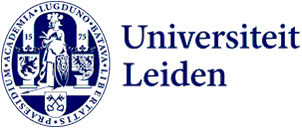
Two new Impact Challenges at KPN for Leiden University students
Just like last academic year, students from Leiden University will get the chance to gain practical experience at KPN. In cooperation with the telecom company, two Impact Challenges are being offered, around the theme 'building bridges'.
Impact Challenges are intended for master's and third-year bachelor's students who want to look beyond the boundaries of their own discipline. The challenges are project-based assignments. Students work together towards solving a problem of a partner organisation. In this way, participants train their practical skills while making a positive impact.
"We welcome the fresh perspective of students"
Building bridges
In the Impact Challenge Building a Bridge between Tech and Business, students will build a bridge between the Cloud & Workplace technical department and the rest of the organisation. "We are keen to improve visibility within KPN and therefore welcome the fresh perspective of students. They will have the opportunity to conduct interviews and come up with their own solutions, which can have a real impact within KPN."
The second Impact Challenge also focuses on making connections, but then between KPN and its customers. This is a challenge from the Business-to-Business department. "We would like to work on this with students. They carry out activities in marketing, campaigns and employee skills, but we are open to out-of-the-box ideas."
-

The final presentations of the KPN Challenges last year at the KPN headquarters in Rotterdam. -

The final presentations of the KPN Challenges last year at the KPN headquarters in Rotterdam. -

The final presentations of the KPN Challenges last year at the KPN headquarters in Rotterdam. -

The final presentations of the KPN Challenges last year at the KPN headquarters in Rotterdam. -

The final presentations of the KPN Challenges last year at the KPN headquarters in Rotterdam.
Critical eye
Last academic year, KPN and Leiden University also worked together as part of the Impact Challenges. Back then, there were two projects: one on human rights and one on the Internet of Things (IoT).
That cooperation proved successful, says Titia Houweling of KPN’s IoT project: "We wanted a critical view, and the students did that just incredibly well." Sometimes that critical attitude was a bit uncomfortable, confesses student and former IoT project participant Veronique. But precisely because of that, their advice proved impactful. "They have already said they are going to implement a lot of our input."
